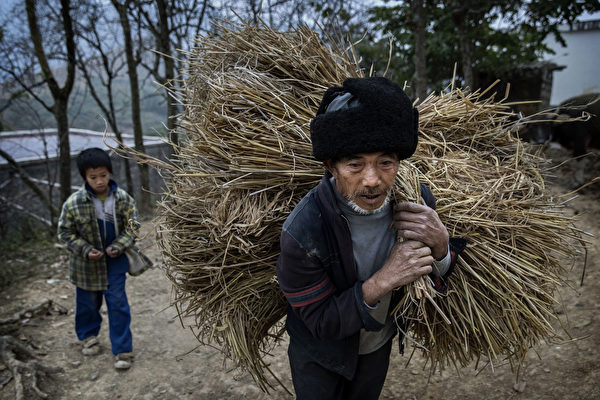Illustration: The difficult lives of elderly people in rural China (Getty Image)
[People News] Caring for the elderly and providing them with security has always been a hallmark of modern civilized societies. For the Chinese Communist Party (CCP), which emphasizes the "right to survival" as a fundamental human right, this is an issue that cannot be ignored. So, as China's population ages, what is the state of the country’s eldercare facilities and investments?
According to Radio Free Asia, China’s Economic Observer recently cited data from the business information platform "Qichacha," revealing a sharp decline in the registration of eldercare-related enterprises since 2019. As of December 11, 2024, there were only 681 newly registered eldercare-related enterprises nationwide, representing a 22.5% decrease compared to 2023 and just 26% of the number registered in 2019.
In other words, over the past five years, the number of eldercare enterprises in China has plummeted by 70%. What’s causing this drastic decline?
To answer this question, we must first understand the current state of China’s population structure. According to official data from the National Bureau of Statistics, China’s total population at the end of 2023 was 1.40967 billion, down by 2.08 million compared to the previous year. Among this, the population aged 65 and older reached 216.76 million (15.4%), while those aged 60 and older numbered 296.97 million (21.1%). Additionally, a report released by the Central University of Finance and Economics on Saturday, The China Human Capital Report 2024, noted that the average age of the labor force in China increased significantly from 32.25 years in 1985 to 39.72 years in 2022. This indicates a clear trend toward an aging workforce.
There are growing concerns that aging demographics and declining birth rates could become fundamental challenges for China’s economy. The Wall Street Journal highlighted that, amid China’s ongoing economic struggles and real estate market downturn, local governments are increasingly short of funds for public services like pension payments. As early as 2019, the CCP-affiliated Chinese Academy of Social Sciences predicted that even with government subsidies, China’s state-run urban employee pension fund could be depleted by 2035, relying entirely on contributions from new workers by then.
So how did China’s eldercare industry shift from competing for senior residents to incurring losses, with an increasing number of facilities forced to shut down? The Economic Observer quoted several eldercare facility operators who pointed to two main reasons: “low willingness of the elderly to move into facilities” and “limited spending power among the elderly.”
Clearly, ensuring that the elderly are cared for and supported involves much more than simply building eldercare facilities. It requires addressing deeper issues like policy support, social welfare systems, and investment strategies—challenges the CCP government must face head-on.











News magazine bootstrap themes!
I like this themes, fast loading and look profesional
Thank you Carlos!
You're welcome!
Please support me with give positive rating!
Yes Sure!